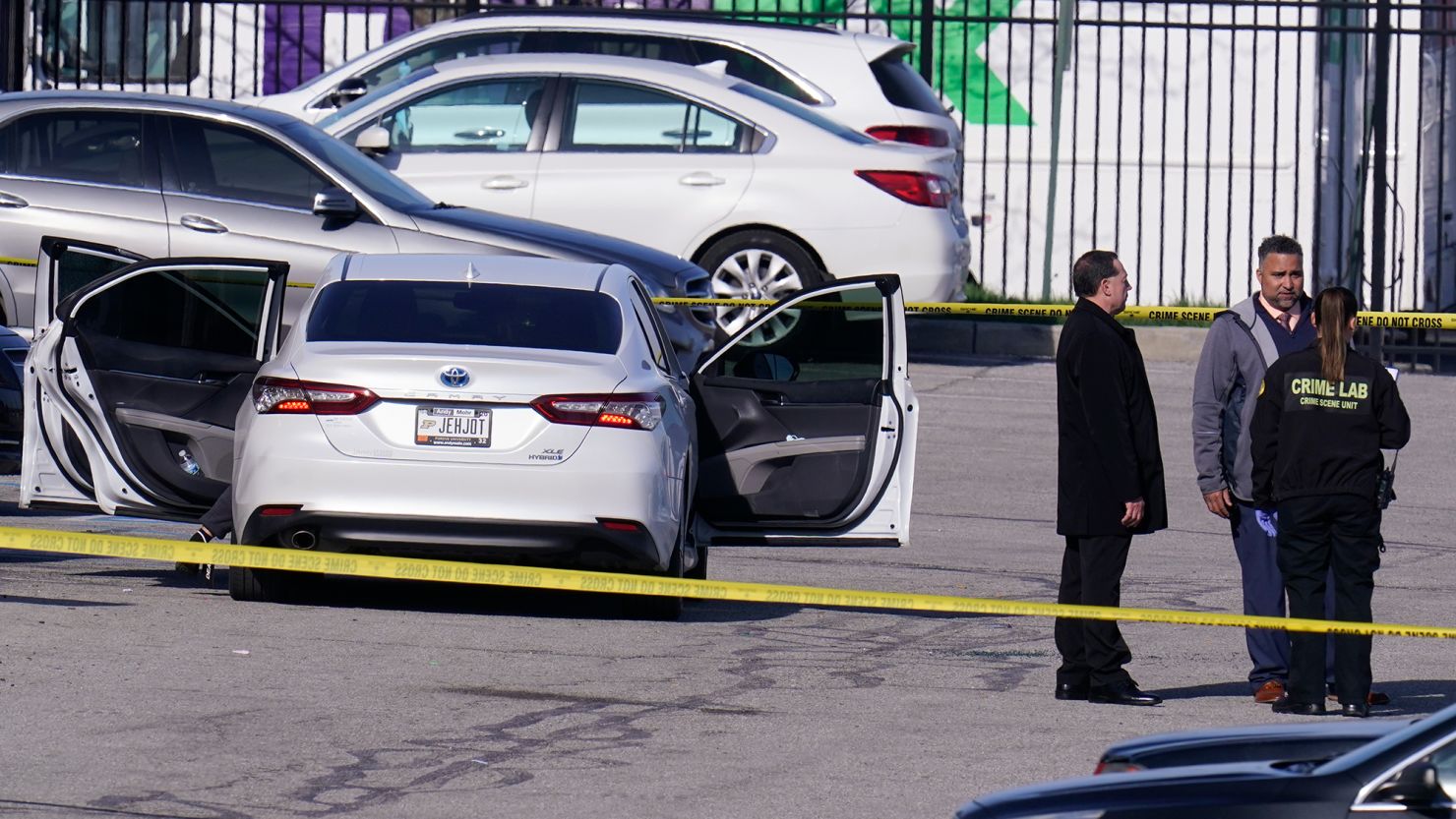
CNN —
The family of a victim and several survivors of a mass shooting at a FedEx facility in Indianapolis filed a lawsuit against companies involved in the manufacturing, marketing and sale of the high capacity magazine used by the gunman who killed 8 people and injured several others in 2021.
The federal lawsuit, filed in US District Court in the Western District of New York, targets a gun distributor and magazine manufacturers, and alleges the companies recklessly marketed and sold their products to impulsive young men at risk of violence.
The gunman in the April 15, 2021, attack, Brandon Hole, 19, was previously employed at the facility and opened fire on his former coworkers before killing himself. About a year before the attack, Hole browsed White supremacist websites, CNN previously reported. His mother contacted the police in March 2020 because she was worried about his behavior and threatening statements he’d made after he purchased a gun, according to police.
The lawsuit was filed Thursday on behalf of the estate of Jaswinder Singh, who was killed during the shooting, Harpreet Singh, who was injured, and his wife Dilpreet Kaur, and Lakhwinder Kaur, who was also injured in the attack. They are each seeking at least $75,000 from the lawsuit and are asking for a jury trial, according to the complaint.
The lawsuit targets American Tactical Inc., an American firearms importer, manufacturer and seller, along with the company’s president and the director of marketing and purchasing. Schmeisser GmbH, a German firearms manufacturer; and 365 Plus d.o.o., a Slovenian company that designs, produces and distributes firearms accessories and other tactical equipment are also listed as defendants.
The three companies were involved in the manufacturing, marketing and sale of the 60-round high-capacity magazines that “have been used repeatedly to slaughter and terrorize Americans in horrific mass shootings since long before April 2021,” the lawsuit says.

The lawsuit claims these companies made these magazines easily accessible to Hole and targeted their marketing campaign to “a consumer base filled with impulsive young men who feel they need to harm others in order to prove their strength and who have militaristic delusions of fighting in a war or a video game.”
“This case is about what happens when companies recklessly design, market, sell, and distribute these accessories to the general public—indiscriminately—and without adherence to reasonable safeguards,” the lawsuit reads.
American Tactical declined to comment to CNN about the lawsuit. Lawyers for the other defendants did not immediately respond to requests.
Schmeisser GmbH manufactured the magazine used in the mass shooting and distributed it in the US through American Tactical and 365 Plus, the lawsuit claims.
“The high capacity of the magazine emboldened the shooter to commit the attack, knowing he had the ability to fire 60 rounds continuously without the need to pause to reload,” the lawsuit says.
The complaint says American Tactical promoted marketing videos that show men dressed in tactical vests similar to what Hole wore during the 2021 attack as they fire “a constant stream of bullets at unseen targets in various offensive, tactical operations.”
The lawsuit alleges the firearm companies placed an “unreasonably dangerous product on the market without sufficient safeguards to prevent its foreseeable unlawful use.”
The Brady Center to Prevent Gun Violence, the gun control advocacy organization that employs two of several lawyers representing the plaintiffs, wrote in a statement to CNN the nonprofit is “trying to achieve justice for these survivors and their family, and hold American Tactical, Inc. accountable for their irresponsible marketing and sales practices.”
“If you decide to sell such highly lethal products to the general public anyway, you need to be very careful about who you’re selling them to. As we allege in our complaint, defendants here have instead taken a hard turn and specifically marketed their highly lethal products to a dangerous class of individuals,” said Philip Bangle, the Brady Center’s senior litigation council.








